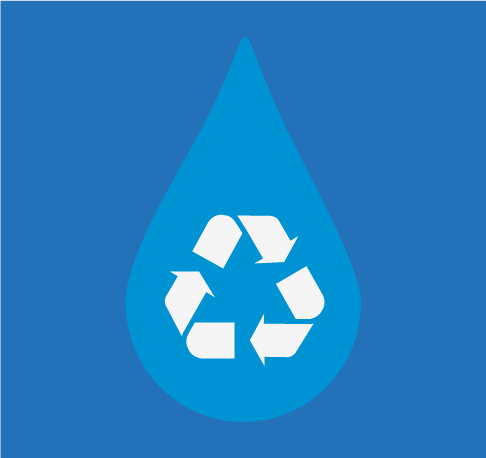- Home Page
- Energy 101: Resources to Help Understand Energy
- What Is Water Conservation?
What Is Water Conservation?
Water conservation is the practice of using water efficiently to reduce unnecessary water usage. According to Fresh Water Watch, water conservation is important because fresh clean water is a limited resource, as well as a costly one. As a homeowner, you’re probably already well aware of the financial costs of inefficient water use. Conservation of this natural resource is critical for the environment — and our wallets.

America’s population has doubled over the last half century, and our demand for water has tripled. Water conservation is more important than ever, and the world is looking for tips on saving water. The great news is that with just a few simple changes, you can reduce your water footprint. And Constellation is here to help!
How to save water: 10 tips for saving water around the home
The majority of household water use comes from toilets, washing machines, showers, baths, faucets and leaks, but what you can do to save water is fairly simple. These 10 water-saving tips will put you on the path to conserving water in your household.
- Put a brick in your toilet’s water tank. You flush an average of 20 gallons of water a day down the toilet. If you don’t have a high-efficiency toilet, try filling your tank with something that will displace some of that water, such as a brick.
- Use the right amount of water for each load of laundry. Typically 15-40 percent of indoor home water use comes from doing laundry. Save water by making sure to adjust the settings on your machine to the proper load size.
- Pick your washing machine wisely. When considering top-load vs. front-load washers, front-loading washing machines generally use less water.
- Water plants wisely. Water your lawn or garden early in the morning or late in the evening, so the water lasts and is not immediately evaporated by the hot sun.
- Install a low-flow showerhead. With a low-flow showerhead, you can save 15 gallons of water during a 10-minute shower.
- Check for and repair leaks. An average of 10,000 gallons of water is wasted every year due to household leaks. One of the most effective ways to cut your water footprint is to repair leaky faucets and toilets.
- Use a dishwasher. Dishwashing accounts for less than 2 percent of indoor water use, but using a machine is actually more water efficient than hand washing, especially if you run full loads. ENERGY STAR® dishwashers save about 1,600 gallons of water over its lifetime of use.
- Turn off the water. Teach your whole household to turn off the faucet while brushing teeth or shaving. Every little bit of water conservation helps!
- Defrost food in the fridge. Instead of running frozen foods under hot water from the faucet, build in time to let them defrost in the refrigerator.
- Manage outdoor water use. Don’t forget about water conservation outside as well. Equip all hoses with shut-off nozzles, which can prevent hose leaks.
What else can you do to save water?
When running your dishwasher or washing machine, make sure you fully load each cycle. Running full cycles helps conserve water because these appliances will fill to a certain level and having more dishes or clothes reduces the amount of water needed for each cycle. This ensures that you get the most energy-saving and water-saving use from each run of your appliances. Here’s a video on how to save water by packing your dishwasher efficiently:
One of the best water conservation tips out there, with possibly the largest impact, is a simple one: Take showers instead of baths. Baths may be relaxing and enjoyable, but it takes more than 78 gallons of water to fill a tub. Showers are a more water efficient way to bathe. Here are more tips on saving water from taking a shower:
More resources and tips on saving water:
Check out these up-to-date and helpful resources on water conservation tips: